|
Isaak Boleac and Hilda Balkon, about 1953, Vancouver Isaak Boleac (1927-2007) was one of my father's three dear cousins, who were our only close relatives in Vancouver when I grew up. He left a genealogical treasure recently discovered by his daughter Esther Wolff. Isaak tells the story of an outsider being embraced by Russian Mennonites, then enduring through much upheaval. I translated Isaak’s letter with help from the DeepL translation website. Minor errors in the neatly handwritten text were corrected. For clarity, I added headings, bullets, and paragraph breaks. Explanatory information not in the original text is shown in square brackets. The original transcription is in the German language version of this blog post. Isaak’s obituary follows. Isaak’s father, Dimitri Boleac (aka Dumitru Boleacu, Johann Boljak), arrived in Russia as a Romanian soldier. After being captured in World War I, he was welcomed by the Mennonites of Friedensfeld, Sagradovka, where he became a strong believer and witness for Christ. He worked as a cooper (barrel-maker) and had a large family after marrying my dad’s aunt Agathe Graewe. But Dimitri noticed the increasing danger in Russia and received permission for the family to leave the country, thus avoiding the fate of many young men of the settlement who were taken away by the Russians. It wouldn’t be the last time that the family had to move. - Irene Plett Dimitri and Agathe with children Johann, Isaak, Ana and Tina, ca. 1934, Friedensfeld, Sagradovka 8 August 1990 Isaak (Fritz) Boleac 2745-164th St., Surrey, B.C. V4B 4Z5 Canada I'd like to try to put together something of a life story of our parents. It would be easier if my two sisters were here; unfortunately, Anna and Tina are still in Romania. [My brother] Hans (Johann), who volunteered for the air force in 1942 when we lived at 17 Wagnergasse in Jena, Thuringia, was separated from his parents because of enemy action. I was also separated from our family after I was drafted in February 1944. The questions which we cannot answer or specify, and which were important to the immigration authorities, were certainly satisfactorily answered by our parents at the naturalization office in Mährisch-Kromau [now Moravský Krumlov, Czech Republic] on July 21, 1941. Unfortunately, we (mother and children) did not meet our grandparents (on father's side). We do not even have our grandfather's date of birth. His name was Ivan (Johann) Boleac(u). Because he was unfortunately a slave of alcohol, he could not look after the family. Therefore he did not live long. Our good grandmother, Katherina Boleac(u), born in? [question mark in original] Fălticeni, Suceava, Romania, had a very hard life. Children:
Grandmother was forced to give Dimitri away, but because his twin sister died, she quickly took him back. Due to great poverty, Father had only little schooling and was dependent on himself from very early on. He learned the craft of barrel-making (cooper). He came to Russia through enemy action in the First World War. He worked with the German Mennonites, who were called to Russia by the Empress Katherina. With them he came to the greatest experience of his whole life. From an ecclesiastical Orthodox, he became a living, believing Christian. His first wife (née Richards) died without children. In 1924, he married Agathe Graewe, born on April 6, 1904 in Friedensfeld, Ukraine, Russia (the German colony of Sagradovka). Mother's parents were:
[My brother] Johann (Hans) was born on March 29, 1925 in Friedensfeld, Ukraine. On May 28, 1927, Isaak [I] was born in Friedensfeld, Ukraine, Russia. In 1928, Father and his family migrated to South Siberia at the Amur River, in the hope of improving our lives. On July 6, 1929, Anna was born in Schoensee, Siberia, Russia [Savitaya, Amur settlement]. Father worked in a fishery that was very far away from the family. We lived very modestly. Father decided (probably in 1930) to return to Friedensfeld, Ukraine. Many were dispossessed, including grandfather Graewe. The poverty was great. We lived in a little house with a mud roof. Father was the cooper of this area. He fabricated many wooden containers and barrels. On Nov. 11, 1931, Tina (Ekaterina) was born in Friedensfeld. Now Father was moved with the idea of moving to Romania. The communist government caused him a lot of difficulties. They were not well-disposed towards the German Mennonites. Because Father had Romanian citizenship, they could not keep him, but they did not want to let his wife and children leave with him. After we buried our Lydia, who was the latest to be born, we managed to cross the border after many difficulties. As Aunt Katherine [Graewe] Derksen told me in 1989, it was January 1935 when we arrived in Romania. The girl who was then born in Romania did not stay alive for long. Our place of residence was now Iași, the capital of Moldova. Father had a Jewish employer in his occupation. It was soon better for us now. Father found a German Protestant school and church. Anna and I (Isaak) were accepted. Mother disliked the Romanian language. On Aug. 18, 1938, Daniel was born in Iași, Moldova. After that we moved to Dobruja by the Black Sea. Mother liked it much better, only a few people were not German in the village of Mamuslia [Căscioarele], Constanța County. Father borrowed money and started his own business. Soon we were debt-free. We were much better off. Father's brother was also employed in the workshop. Many barrels had to be made. Then came the resettlement of all Germans. Father welcomed it, because he liked to travel. We went via Belgrade to Mährisch-Kromau, Znaim/Niederdonau district [now Moravský Krumlov, Czech Republic]. We now landed in the resettlement camp. Willie, who was also born in Romania, died in 1940. July 21, 1941 was an important day for our family. We became [German] citizens. Wilhelm, who had already been "on the way," was born here on Oct. 14, 1941, two months and 23 days after our naturalization, in Mährisch-Kromau, Znaim/Niederdonau district. Lieselotte was born on May 27, 1943 in Jena, Thuringia. Peter was born on Nov. 16, 1947 in Covăsânț, Banat after the forced deportation to Romania. The naturalization was confirmed on Dec. 20, 1984 by the regulatory office of the state capital, Hanover. This letter is in my possession. After naturalisation, many young men were drafted into the Wehrmacht. Father worked in a jam factory. We had few worries. Hans was temporarily in the countryside. From Mährisch-Kromau, our family went briefly through the transit camp at Bad Blankenburg, then to Jena, Thuringia. It became our home in 1941. We got the little house at 17 Wagnergasse. Father worked at the cooperage, then at the Saale train station. Hans worked at the Schott & Genossen glass factory [Schott & Comrades, now Schott AG]. He soon volunteered to join the airmen. Surprised by an air raid On May 27, 1943, the youngest daughter, Lieselotte, was born in Jena. On that very day, we were surprised by an air raid. Our house was also damaged. Hans (Johann) had a short vacation. Hans Plett, the oldest son of mother's sister Anna, surprised us enormously as a German soldier. Father hadn't recognized him. In February 1944, I (Isaak) was drafted. I was just in the middle of my apprenticeship as a cooper. After brief R.A.D. [Reichsarbeitsdienst] and anti-aircraft training, we went to Berlin. My parents visited me briefly in Halle-Leuna in spring 1944. Twenty years would have to pass before I could see them again. Father was buried alive in the air raid on Jena, but, thank God, he got away with only a light head wound. Father was supposed to join the Volkssturm (emergency army), but was then spared from that. The end of the war was approaching. The Americans occupied Jena, however, withdrew again and let in the Russians. It was 1945. Unfortunately, there was no more opportunity to escape. With little luggage, our family was sent to Romania, completely against their will. When they arrived, they had neither board nor lodging. They were considered followers of Hitler. They were in a very difficult situation. They also didn’t know whether their two sons, who were in the Wehrmacht, were still alive. Johann fell into Russian captivity in Austria. After 4 ½ years, he managed to come to Isaak in Hanover. It was a big surprise for me. Our parents, who had prayed for us a lot, thanked God again and again for our preservation. Isaak, who at the end belonged to the Theodor Koerner division, fell into brief captivity in the west. This was at the beginning of May 1945. We prisoners were all distributed among the farms in the Braunschweig government district. We were released from the army in December (Wolfenbüttel). Until the end of March [1948], I worked as a farmhand in Schlewecke, Badenstein and Mahlum, in the Gandersheim district. Until the end of January 1949, in Bockenem am Harz as a cooper apprentice, then until autumn 1952 at the Kaiser-Brauerei Brewery in Hannover-Ricklingen. The address was 10a Oberstraße. Family reunions Our parents and siblings in Romania had to be helped repeatedly. It seemed to us in Canada that Father demanded too much. Also our beginning was not easy. They asked over and over for everything to be done to bring about a reunion in the West. They were dispatched with promises again and again. Applications and entry papers had to be paid for repeatedly. Johann went to Gronau-Westfalen, married there and migrated to Canada in 1950. Isaak followed at the end of 1952 and first stayed with Johann, who already lived in Vancouver, British Columbia. The beginning in Canada was not easy, but it was worth it to persevere. In Feb. 1952, we tried to achieve a family reunion through the Bavarian Red Cross. Unfortunately it remained unsuccessful. Of the 20 descendants of Johann, our parents only saw Dieter, the oldest son, who visited them when they were still alive. Daniel, the son of Isaak, only found his grandparents' grave in Cuvin in 1989. Isaak's first visit was in 1965. He saw 18-year-old Peter for the first time. The second visit was in the summer of 1974. Half a year later, Father died on January 15, 1975 (photograph date). Mother was weak. She lived until 1981; Tina looked after her faithfully. When Johann was in Russian captivity, he didn’t disclose that he had parents in Romania. Therefore he couldn’t visit them immediately on the way after he was released in 1950. He didn’t want to risk it. In East Germany, they tried to persuade him to stay, but his goal remained firm. He wanted to go to Hanover to see Isaak. Only after 23 years did he [Johann] see our parents and siblings again. In 1973, he visited them for the second time. In Germany, he could visit Aunt Neta, Mother's oldest sister; Aunt Maria Graewe; Johann Friesen; [Neta’s son] Peter Plett in Hochheim [am Main], and other relatives. August 1990 was the third time that he was in Europe for a visit. [Now in Romania:] Anna is in Iași, married to Michael [Mihai] Acatrinei. They have 6 children. Tina is in Arad, married to Abraham [Avram] Popescu. Daniel is also married in Arad, Banat, and has a daughter. Wilhelm is now in Neuwied [in Germany]. We are hopeful that he will reside there. Our cousin Anna Thiessen is very committed to him…. Aunt Margarete Buhler in Neuwied and Aunt Katherina Derksen, Mother's sisters, are glad to have seen him. Willie now has the opportunity to visit and get to know all relatives in Germany. Those in Canada of course also wish to see him. In 1984, he was not able to come to visit. [Also in Romania:] Lieselotte is married to Konstantin Nistor in Arad. Daughter Camelia[-Manuela] is currently still studying medicine. Peter and Ana Boleac are in Arad and have four children. It looks very poor for them. In the summer of 1989, [my son] Daniel and I were able to see and speak to all the loved ones that I am writing about here. Also Jakob Plett in Schwäbisch Gmünd, with all his loved ones. He is the son of Mother's sister Anna. [My cousins] Peter Plett and Heinrich (Isaak) Graewe are here with us in Canada. When my son Daniel became somewhat ill in Romania, I told Tina that we had to go to Jakob Plett as soon as possible. We arrived at midnight. We could visit Maria, the daughter of Uncle Isaak Graewe, in Espelkamp. We only found the grave of our parents, but near Cologne and Saarburg we found Aunt Katharine [Graewe] Derksen and Aunt Gretel [Graewe] Buhler with relatives. It was a special joy. It is a pity that not all relatives from Canada were there. In the last few days, I have read many old letters from my parents. At the end they sometimes write: "If we do not see each other again on earth, we will see each other in the eternal home." May this wish of my parents prove true not only for our relatives, but also for all those who want to join us. Isaak Boleac. Isaak with Maria Graewe and grandson David in Surrey, B.C., 1983 Isaak and his son Daniel with relatives in Germany, 1989 standing: (not in order) Johann Friesen, Daniel Boleac, Abraham Graewe, Walter Buehler, Johann Buehler, Linda Friesen, Maria Friesen seated: Maria Graewe (wife of Abraham), Tante Katya (Graewe) Derksen, Isaak Boleac Obituary Isaak died in White Rock, B.C. on 28 Jan. 2007. His daughter Esther (Boleac) Woolf read his obituary at the funeral. Some new information has been added from our research. Dad was born May 28, 1927 in Friedensfeld, Sagradovka, Russia to Dimitru and Agathe (Graewe) Boleac. He was the second oldest of 11 children. The family was forced to move several times. They moved to Siberia in 1928, and then back to Friedensfeld, then Romania, Moldova and Germany. Dad went into the German workforce, and then in 1944 at age 16, Dad was taken to Berlin to be in the military service. He saw terrible things in the war. He was a prisoner of war of the Americans, then the English, until December 1945. During his imprisonment, he was dispersed among farms to do labour. After the war, Dad worked on a German farm for 2 ½ years. He said this was the best place to be because there was always enough food. He moved to Hanover, Germany in 1949, where he lived in a Baptist hostel for young refugees and worked as a cooper. He was reunited there with his older brother, John, after being separated in the war. His parents, brothers and sisters were sent back to Romania. Dad’s mother Agathe told him and his brother John to stay in Germany, knowing it would bring a better life for them, even though it meant splitting up the family. She also encouraged them to go to Canada when the opportunity arose. On Nov 26, 1952, Dad came to Canada by ship on the S.S. Arosa Kulm. He was sponsored by his brother John, who was already in Vancouver. John had arrived on Nov. 23, 1950. Dad helped start the Bethel Pentecostal Church (now Bethel International Church) in Vancouver. The church, founded in 1953, focused on reaching out to the many new German immigrants. He and Mom (Hilda Balkon) married there on Feb. 27, 1954. They had first met in Hanover, Germany, but she had another good friend. The Balkons arrived in Lethbridge, Alberta in April 1951. When Dad learned that Hilda was in Canada and single, he began writing to her. After accepting his written marriage proposal, she arrived in Vancouver. By March of 1953, Dad had found work with Gordon Young, a truck trailer service in Vancouver. In 1955 he was able to practice his trade as a cooper, first for Sweeney Cooperage and then for Thomas Adams Distillers. In 1957, he started building boats at Northwest Plastics and Shipyard. In 1961, Dad began twelve years at a plywood factory, Evan’s Products, and its associated company, Savona Timber. In November 1974, he began 17 ½ years of service as a custodian for the Burnaby School District, before retiring. I (Esther) am the youngest of five children. Dad enjoyed taking us for drives, visiting friends or going to parks to give Mom a break. Kate’s Park, Stanley Park and Queen Elizabeth Park were favourite destinations. He taught me to ice skate on the ponds at Queen Elizabeth Park. It was fun skating through the paths where he had shovelled the snow from the ice. Holding his hand while I skated gave me the most confidence and I would skate the fastest. Dad would also take us up to Mount Seymour to go tobogganing. To this day, we still love the snow. He’d also take us to watch the Abbotsford Airshow, and he even took pictures of the pilot that ejected, and burning jet pieces after a jet crashed in 1972. Once in a while, Dad would stop at Dairy Queen and buy us ice cream cones. That was a real treat. Whenever I’d see a Dairy Queen, I always hoped we’d stop. Dad taught us all how to ride our bikes, grand-children included. He enjoyed bike-riding, even when he was in his seventies. We lived in Vancouver until 1979, then we moved to Surrey. Dad was able to fulfill his dream of building a house. Dad always liked building things and he also liked working outside. He would pick cherries from wild cherry trees, climbing higher than anyone would dare. Dad could fix anything. I always had a list for him when he came over. He was always happy to help anyone, whether it was fixing things, moving or driving. Dad also enjoyed travelling and went back to visit his family in Europe four times. The second-last time, he went with his eldest son, Dan. They came back so used to speaking German, it was hard to switch back to English. It meant a lot to Dad to be able to go with Dan. When Dad retired in 1992, he enjoyed helping Walt and Marcine build their house, cleaning up after the trades, and doing errands and odd jobs. By this time, his fifth grandchild had been born. He loved his grandchildren. When they were babies, if I wanted to hold one of them, I’d go looking for Dad, because that’s who would have them. He was always ready to give them a ride anywhere or to babysit with Mom. You’d just have to ask and he’d be there. Dad enjoyed having his family together for dinners. We would also get together as a family every Sunday. These times became very precious to him as he realized how much his family loved him. Dad was always strong and fit, and resisted seeing a doctor. He used a lot of natural remedies to deal with the pain that was developing. By the time Mom insisted that he see the doctor, they found he had colon cancer and it was too late. He then delayed surgery to remove the tumour as there were too many wild cherries to pick in July. He had no trouble climbing ladders to get the bountiful food. His surgeon removed the tumour in October, but it was not a cure. I was able to visit Dad often at Peace Arch Hospital in White Rock, as I worked nearby. These were precious times together. Dad was not one to talk much about his feelings, but he told me he loved me very much. He also shared how grateful he was for everything that his children had done for him while he was sick. He took Mom’s hand and thanked her for taking care of him during this difficult time. We are very thankful for the time that we had to convey our love to him. He blessed us in many ways. We miss him terribly already. Esther (Boleac) Wolff P.S. After Dad passed away, Mom had a dream that she and Dad were praying together, a deeper prayer than she had ever experienced with Dad before. Jesus' presence was with them in a very strong way. Mom was still worried about how she would manage without Dad. She had another dream where she experienced a bright light and an extreme peace that she couldn't describe. She knew that she was in God's hand, and everything would be okay. Hilda lived until Dec. 5, 2014. She and Isaak are buried in the Valley View Cemetery in Surrey, B.C. Their descendants live in British Columbia. Isaak and Hilda with family, Christmas 2004 Isaak picking wild cherries
2 Comments
Tudoroiu (Boleac)
4/26/2023 03:48:08 pm
Peter and Ana Boleac are in Arad and have four children. It looks very poor for them. So poor , because my parents Ana&Peter Boleac never asked help and never complaine about that to the rest of family over the ocean.And let me informe you ,we were poor because my dad was suffering of the psihycal troubles,but my mom,never let him down and i'm so proud of her,because she gaves us a good education and now we are all four doing so well. Sorry but reading those words about my parents,only that tou have nothing else to say about them.My grand-parents Agatha &Dimitri Boleac were a poor family either,but they fight with the life for their family and this was a great and the most important thing they ever could do,and I apreciate them for that like my parents also.
Reply
5/16/2023 07:00:22 pm
I'm sorry to hear that your parents are not doing well. I can hear that you are proud of them and of your grandparents, who suffered so much too. Their stories are inspiring.
Reply
Leave a Reply. |
WriterIrene Plett is a writer, poet and animal lover living in South Surrey, British Columbia, Canada. Categories
All
|
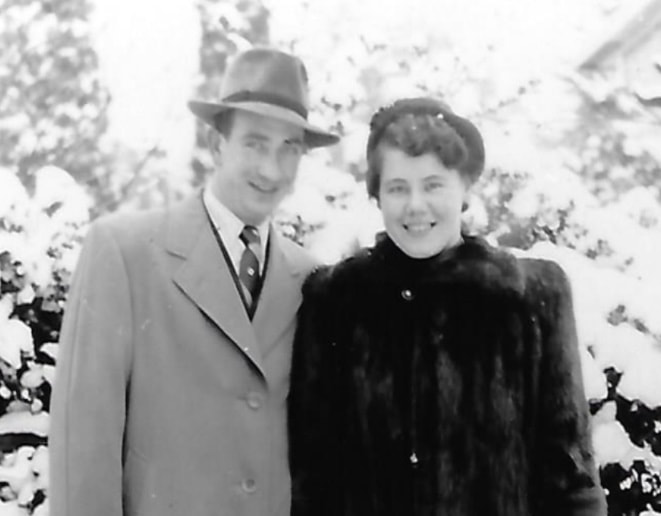
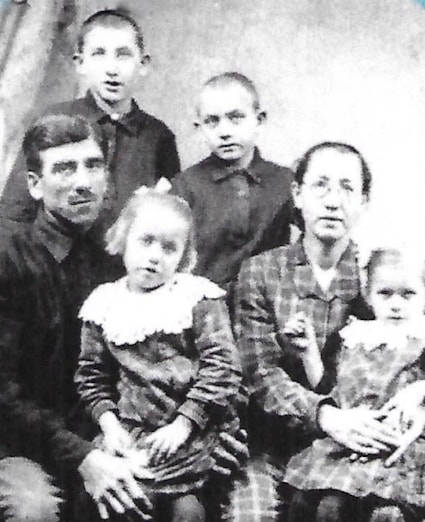
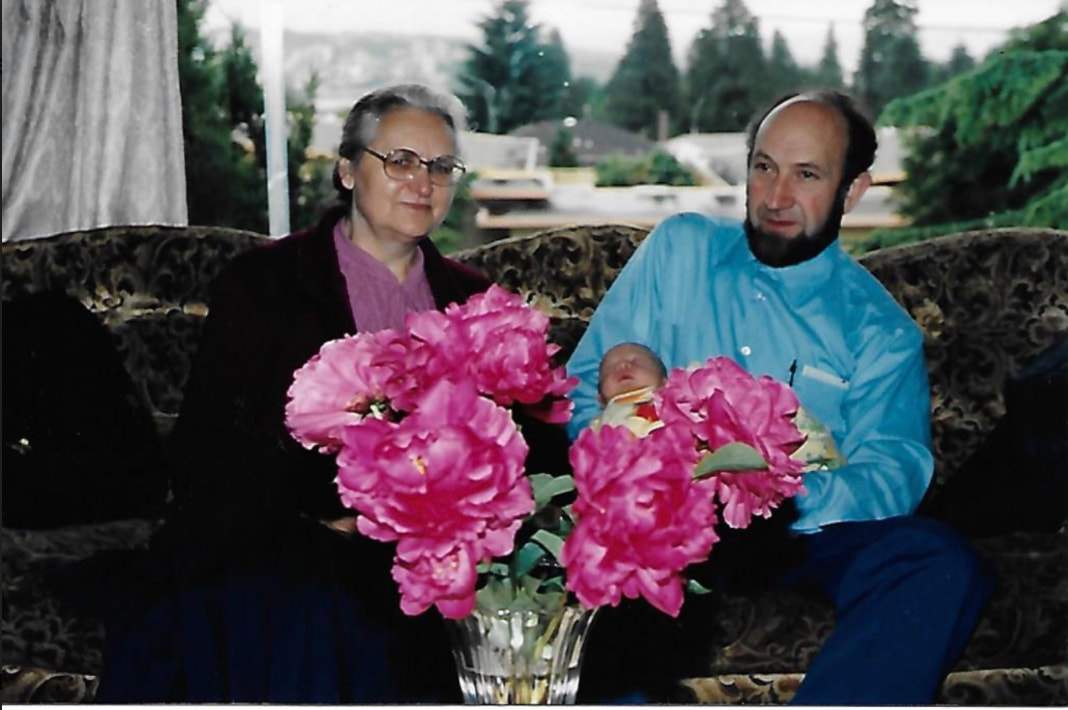
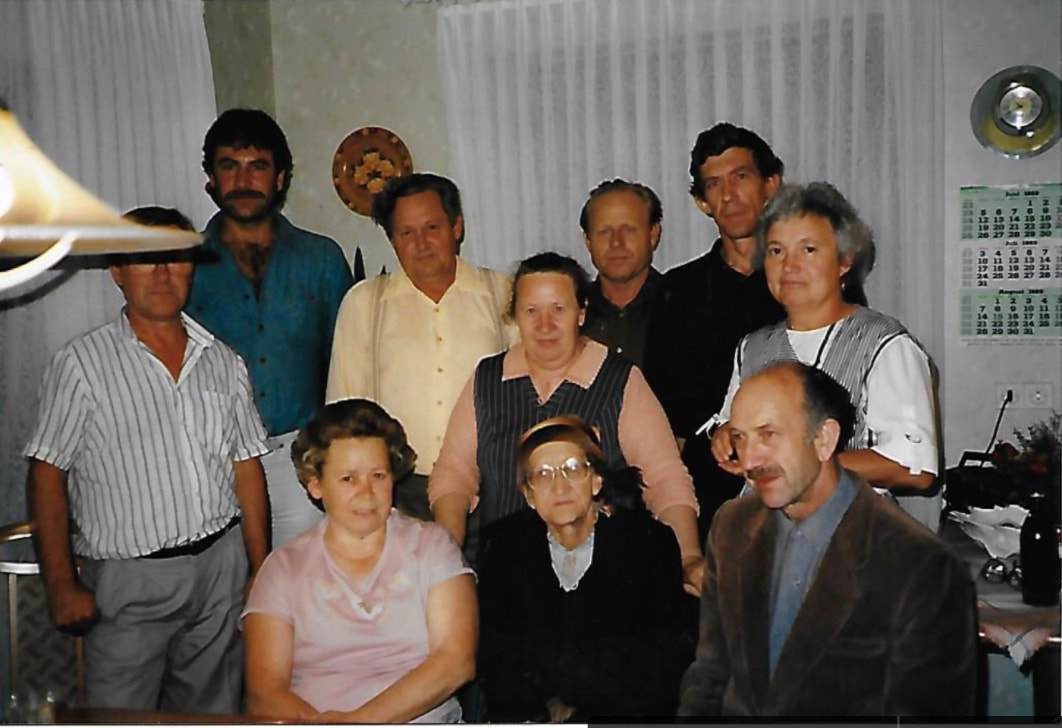
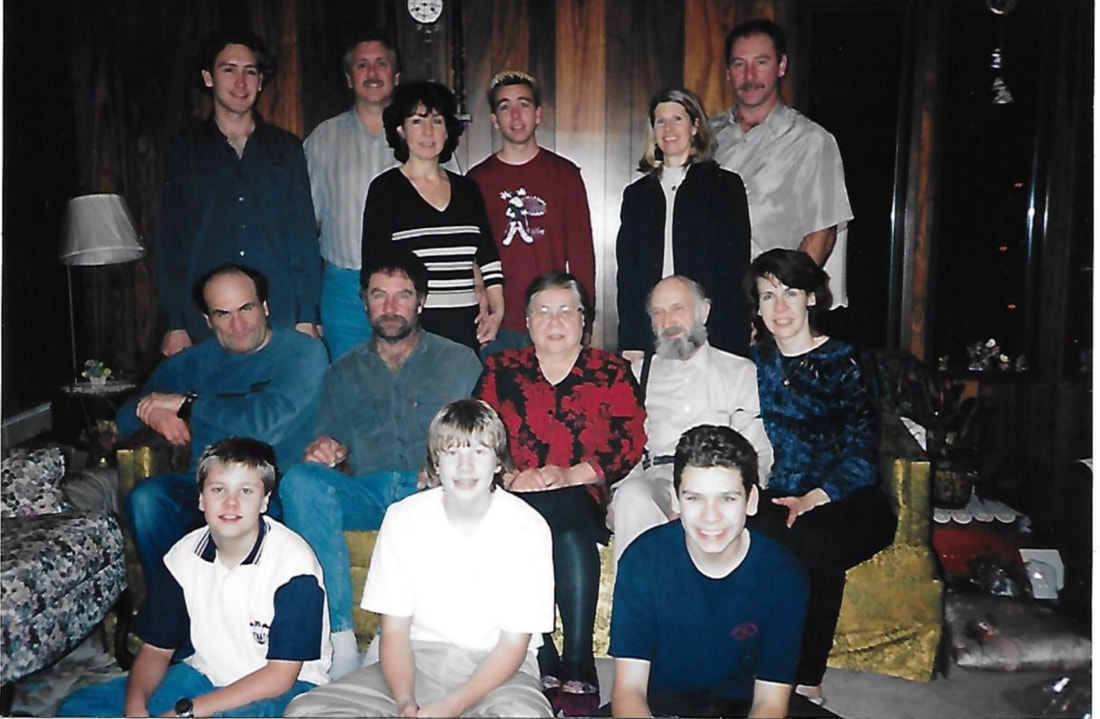
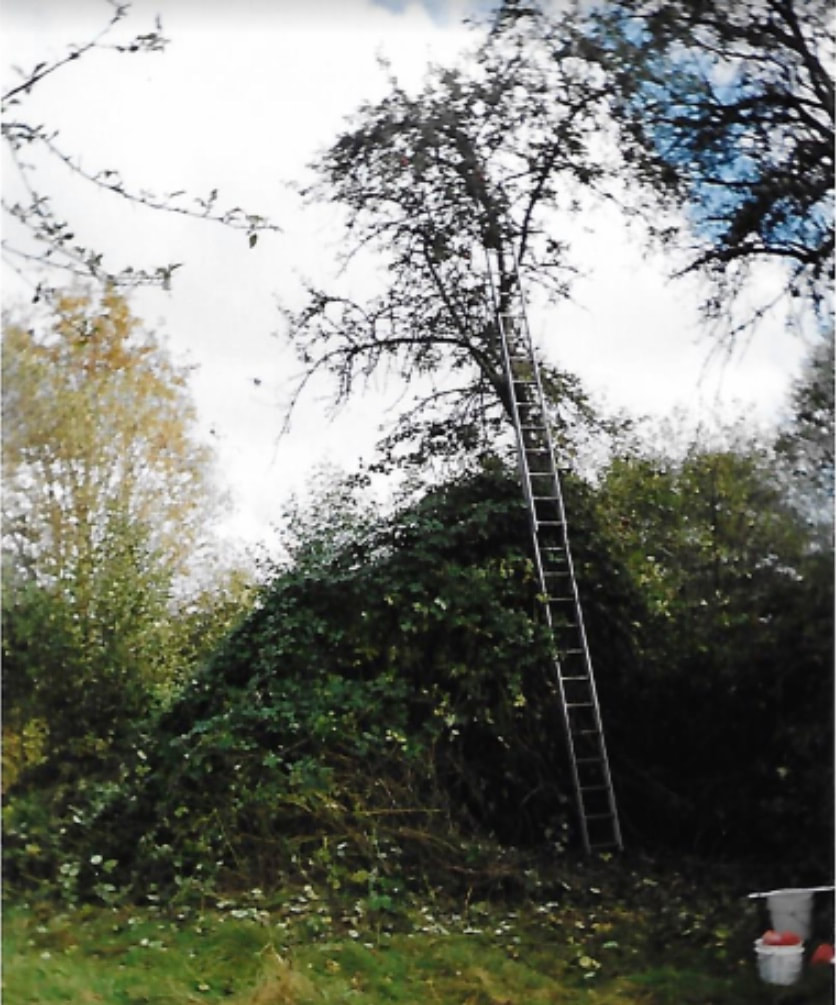
 RSS Feed
RSS Feed
